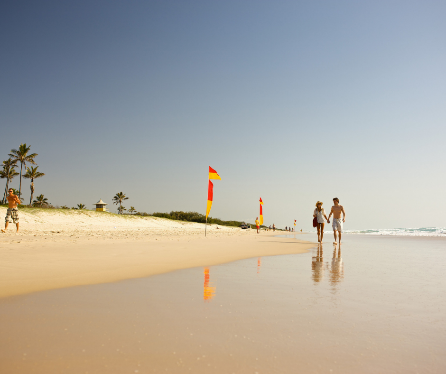Ahh – The beach! We love the water, the sand, the sun and the family time to unwind and have FUN!
Staying safe at the beach is very important. Weather and water conditions can change rapidly. In the blink of an eye someone could be caught in a rip-current.
Be sure to:
- Follow all beach rules and regulations.
- Swim only in areas where there are life guards.
- Avoid drinking or the overconsumption of alcohol, especially if you’re swimming or boating.
- Keep an eye on your children at all times.
- Safely secure all umbrellas in place to prevent injury to yourself or others.
At the beach, it’s important to find and follow posted signs and flags. This is for your safety. And as your insurance agent, we strongly encourage you to do so!
There may be lifeguards or other beach patrol officers on duty. They may make announcements over a loudspeaker, or you can ask them about beach conditions.
Follow their guidance and instructions. This applies to when you’re on the sand or in the water. They are there to help keep your family safe and ensure everyone has a good time.
You can typically find beach rules posted at the entrance or near the lifeguard stand or tower. The following are rules that you may see posted:
- Look for flags set up on the beach
- Know where lifeguard stations are
- Look for signs and postings near the entrance or lifeguard tower
- Talk with lifeguards for tips and information about the beach and water conditions
Everyone in your party should be a strong swimmer. They should also have experience swimming in the ocean or other large body of water before entering the water.
Beach safety swimming courses may be available at your local Red Cross chapter or YMCA.
When you enter the water, always go in feet first. Avoid diving. Don’t dive off of cliffs, bridges, or other high surfaces.
Swimming in the ocean or a large body of water is different than swimming in a pool or most small lakes. You’ll need to watch out for:
- tides and undercurrents
- unexpected changes
- water depths at drop-offs
- rocks, debris, and other hazards and obstacles
- whether there’s local marine life that can sting or bite
- boats, ships, and other watercraft that may be in the water at the same time
- bad weather in the area, such as lightning or thunderstorms
- tsunami warnings
Please watch these Beach Safety Tips from the American Red Cross! https://www.youtube.com/watch?v=Kv8vLheDSAM
Whether you live close or far from the beach, swimming in the ocean is almost certainly part of most families’ summer plans. While some prefer to stay in the sand, many of those visiting the beach plan on going for a swim in the salty waves. The ocean can be a great time filled with laughter and fun if you follow the proper safety guidelines. Engaging in unsafe or reckless behavior could put you or a family member in a potentially disastrous situation.
Source: https://www.healthline.com/health-news/going-to-beach-pool-what-to-know-covid19-risk and https://www.guard.com/blog/2019/07/17/beach-safety/



